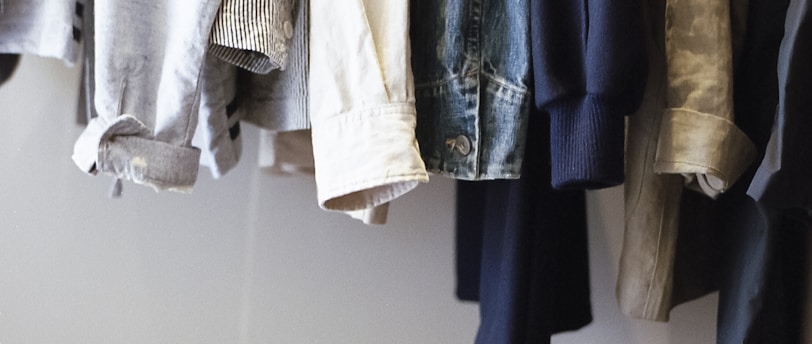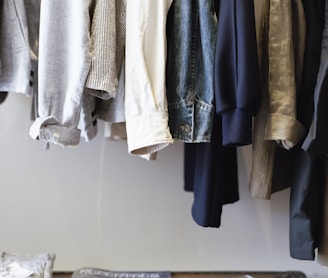Minimum Order Quantities (MOQs) in Garment Manufacturing
MOQs are a common requirement in the garment manufacturing industry, and they can have a significant impact on your business. In this article, we will discuss MOQs in detail and their importance in garment manufacturing.
FASHION GUIDE
Saleem Shahzad
5/11/20234 min read


If you are considering starting a clothing line or launching a new product, you may have come across the term Minimum Order Quantity (MOQ). MOQs are a common requirement in the garment manufacturing industry, and they can have a significant impact on your business. In this article, we will discuss MOQs in detail and their importance in garment manufacturing.
Table of Contents
What are Minimum Order Quantities (MOQs)?
Why do manufacturers have MOQs?
Factors that influence MOQs
Production Capacity
Material Sourcing
Labor Costs
Shipping Costs
Benefits of MOQs for manufacturers
Challenges of MOQs for small businesses
How to negotiate MOQs with manufacturers
Alternatives to MOQs
Conclusion
FAQs
1. What are Minimum Order Quantities (MOQs)?
MOQs are the minimum number of units of a product that a manufacturer will produce for a single order. It is a requirement that manufacturers use to set the minimum quantity of products that customers must purchase in a single order.
For instance, if a manufacturer has an MOQ of 500 units for a product, the customer must purchase at least 500 units to place an order. This requirement is set by the manufacturer and can vary significantly based on the type of product, manufacturing process, and other factors.
2. Why do manufacturers have MOQs?
Manufacturers set MOQs for several reasons. The main reason is to optimize their production process and improve their efficiency. By producing a large batch of products, manufacturers can reduce their production costs, such as material sourcing, labor costs, and shipping costs.
In addition, MOQs help manufacturers manage their inventory and cash flow. Producing large batches of products ensures that they have enough inventory to meet demand, and they can manage their cash flow better by receiving larger payments upfront.
3. Factors that influence MOQs
Several factors influence MOQs. Here are some of the most common factors:
Production Capacity
Production capacity is one of the most significant factors that influence MOQs. Manufacturers must have enough production capacity to produce the minimum order quantity effectively. If a manufacturer has limited production capacity, they may set higher MOQs to ensure that their production runs are optimized.
Material Sourcing
Material sourcing is another critical factor that influences MOQs. Manufacturers need to purchase materials in large quantities to ensure that they can produce the required quantity of products. If the manufacturer cannot source enough materials to meet the MOQ, they may have to set a higher MOQ to ensure that their production process is efficient.
Labor Costs
Labor costs are another critical factor that influences MOQs. Manufacturers must pay their workers for the time spent producing products. By producing large batches of products, manufacturers can optimize their labor costs and reduce their per-unit production costs.
Shipping Costs
Shipping costs are another factor that influences MOQs. Shipping costs can be significant, especially for international shipments. By producing larger batches of products, manufacturers can optimize their shipping costs and reduce their per-unit shipping costs.
4. Benefits of MOQs for manufacturers
There are several benefits of MOQs for manufacturers:
MOQs help manufacturers optimize their production process and reduce their per-unit production costs.
MOQs help manufacturers manage their inventory and cash flow better.
MOQs help manufacturers reduce their per-unit shipping costs by producing larger batches of products.
5. Challenges of MOQs for small businesses
While MOQs can be beneficial for manufacturers, they can present significant challenges for small businesses. Small businesses may not have the resources to meet the high minimum order quantities set by manufacturers. This can lead to inventory management problems and cash flow issues.
Small businesses may also struggle to negotiate favorable terms with manufacturers. Manufacturers may be less willing to negotiate MOQs with small businesses, as they may not see them as significant customers.
6. How to negotiate MOQs with manufacturers
Negotiating MOQs with manufacturers can be challenging, but it is not impossible. Here are some tips for negotiating MOQs with manufacturers:
Research the manufacturer's MOQ requirements and production process before negotiating.
Show the manufacturer that you are a serious customer by providing detailed information about your business and your projected order volume.
Offer to pay a higher price per unit in exchange for a lower MOQ.
Consider offering a deposit or prepayment to demonstrate your commitment to the order.
Be willing to compromise and negotiate a reasonable MOQ that works for both parties.
7. Alternatives to MOQs
If you cannot meet a manufacturer's MOQ requirements, there are several alternatives you can consider:
Look for manufacturers that have lower MOQs or no MOQs.
Consider using a manufacturing broker or agent who can help you find a manufacturer that meets your requirements.
Consider outsourcing your production to a third-party manufacturer or a freelancer who can produce smaller quantities of products.
8. Conclusion
MOQs are an essential part of the garment manufacturing industry, and they can have significant implications for businesses. While MOQs can help manufacturers optimize their production process and reduce their per-unit costs, they can present significant challenges for small businesses. By understanding the factors that influence MOQs and negotiating effectively with manufacturers, businesses can find ways to meet their production requirements while minimizing their costs and risks.
9. FAQs
Why do manufacturers have MOQs? Manufacturers set MOQs to optimize their production process, manage their inventory and cash flow, and reduce their per-unit costs.
What factors influence MOQs? Several factors influence MOQs, including production capacity, material sourcing, labor costs, and shipping costs.
How can small businesses negotiate MOQs with manufacturers? Small businesses can negotiate MOQs by researching the manufacturer's requirements, showing their commitment to the order, offering to pay a higher price per unit, and being willing to compromise.
What alternatives are there to MOQs? Alternatives to MOQs include finding manufacturers with lower MOQs, using a manufacturing broker or agent, or outsourcing production to a third-party manufacturer or freelancer.
Is it possible to start a clothing line without meeting MOQ requirements? Yes, it is possible to start a clothing line without meeting MOQ requirements by finding manufacturers with lower MOQs or no MOQs, using a manufacturing broker or agent, or outsourcing production to a third-party manufacturer or freelancer.
